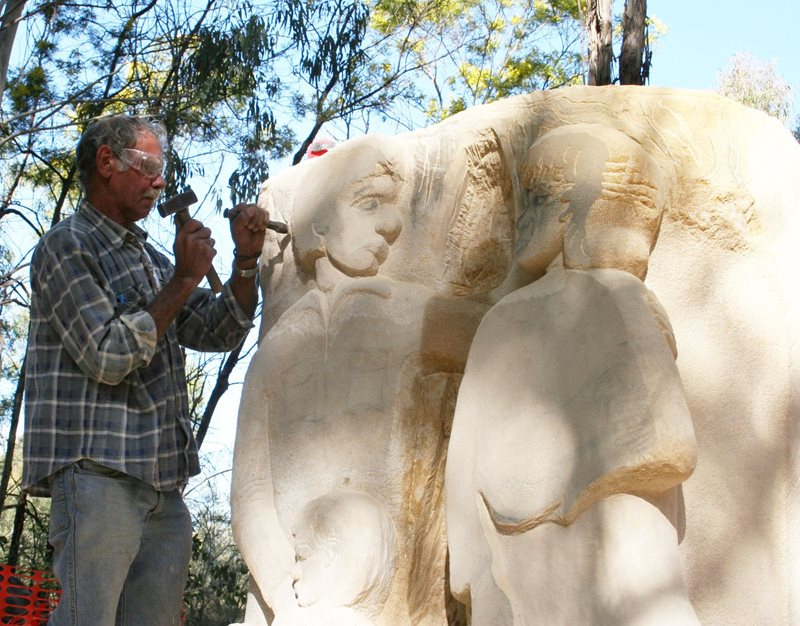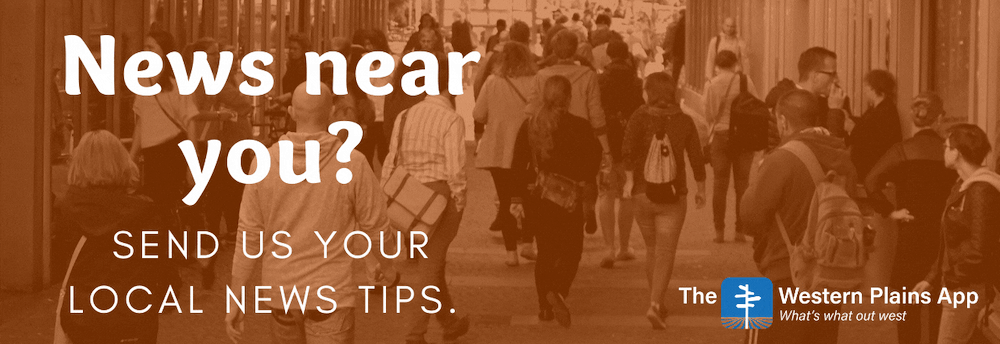"We all want to be loved" - a message for Reconciliation Week.
Kristin Murdock
30 May 2023, 3:40 AM
 Lynda Edwards from Narromine says "being a voice must first come with courage to listen and learn"
Lynda Edwards from Narromine says "being a voice must first come with courage to listen and learn"“Reconciliation means that there is equality for all. We are all human. We all want to be loved. We all want to be safe, and we all want to be included, ”Lynda Edwards, a proud Wangkumara and Barkandji woman from Narromine said in a message for Reconciliation Week.
National Reconciliation Week is on now, running from May 27 to June 3. The theme is "Be a Voice for Generations," aiming to encourage all Australians to be a voice for reconciliation in tangible ways in our everyday lives – where we live, work and socialise.
Ms Edwards who was named in March as 2023 Aboriginal Woman of the Year by the NSW Government, has been a dedicated voice and volunteer for her community, as well as a passionate advocate for the financial rights, fairness and inclusion of First Nations people across New South Wales.
For Ms Edwards, being a “voice” must first come with the courage and desire to listen and learn.
“How do non-Indigenous people see Aboriginal people; what do they know of our history, our fight for survival, and our fight to have our voices heard?” Ms Edwards said.
"There is a difference in listening and really hearing that changes your very soul, and in this deep listening, our souls and our minds are open. This is where true reconciliation starts.”
Ms Edwards is driven by a genuine sense of purpose and a desire to achieve better, fairer financial outcomes for First Nations people who are frequently the target of unfair dealings and too often fall victim to these practices.
“What people, particularly those in the national space, need to understand is First Nations people have only had money in their economies for 100 years” Edwards told the Western Plains App at the time of her award.
“My grandfather was paid in rations. First Nations people were not allowed to have their own homes and their own money for a long time after colonialisation…my Grandfather never taught my mother about what it means to be part of the economy and my Mother never taught me”
Mark Coulton MP, Federal Member for Parkes said Reconciliation Week is an opportunity to reflect, remember and learn.
"On the 26 May it was also National Sorry Day, when we acknowledge the suffering experienced by the Stolen Generations," Mr Coulton said.
National Sorry Day commemorates and acknowledges the atrocities faced by First Nations children who were forcibly removed from their families and communities and the continuing impacts on Stolen Generations survivors, their families and communities.

Uncle Badger Bates sculpting the National Sorry Day memorial at the Australian Botanic Gardens.
Last Saturday at the Australian Botanic Garden in Mount Annan, a restored memorial was unveiled that commemorates the Stolen Generations, from the mid-1800s to the 1970s.
Sculpted by Uncle Badger Bates who was born in Wilcannia in 1947 and spent his childhood travelling up and down the Baarka (Darling River) it was first unveiled in 2007 and became renowned as an important centrepiece for annual Sorry Day ceremonies.
The Memorial was defaced in February 2020, deeply upsetting the local community. Since it was damaged, Uncle Badger has worked alongside Indigenous Elders and staff at the Garden to repair and help protect the artwork from future vandalism.
“All I did was hold the hammer and chisel; the stone did the rest. The little boy is especially dear to me, and he gave me guidance, fix me, fix my sister, then my mother, then my father,” said Uncle Badger.
Mr Coulton said that as the Member of Parliament representing the electorate with the second-highest percentage of Aboriginal people in Australia he will continue to work towards reconciliation by supporting local leaders in the communities he represents.
"Their strength and resilience is the reason that I do see a bright future for Aboriginal people in this country, though there remains challenges to overcome," Mr Coulton said.




